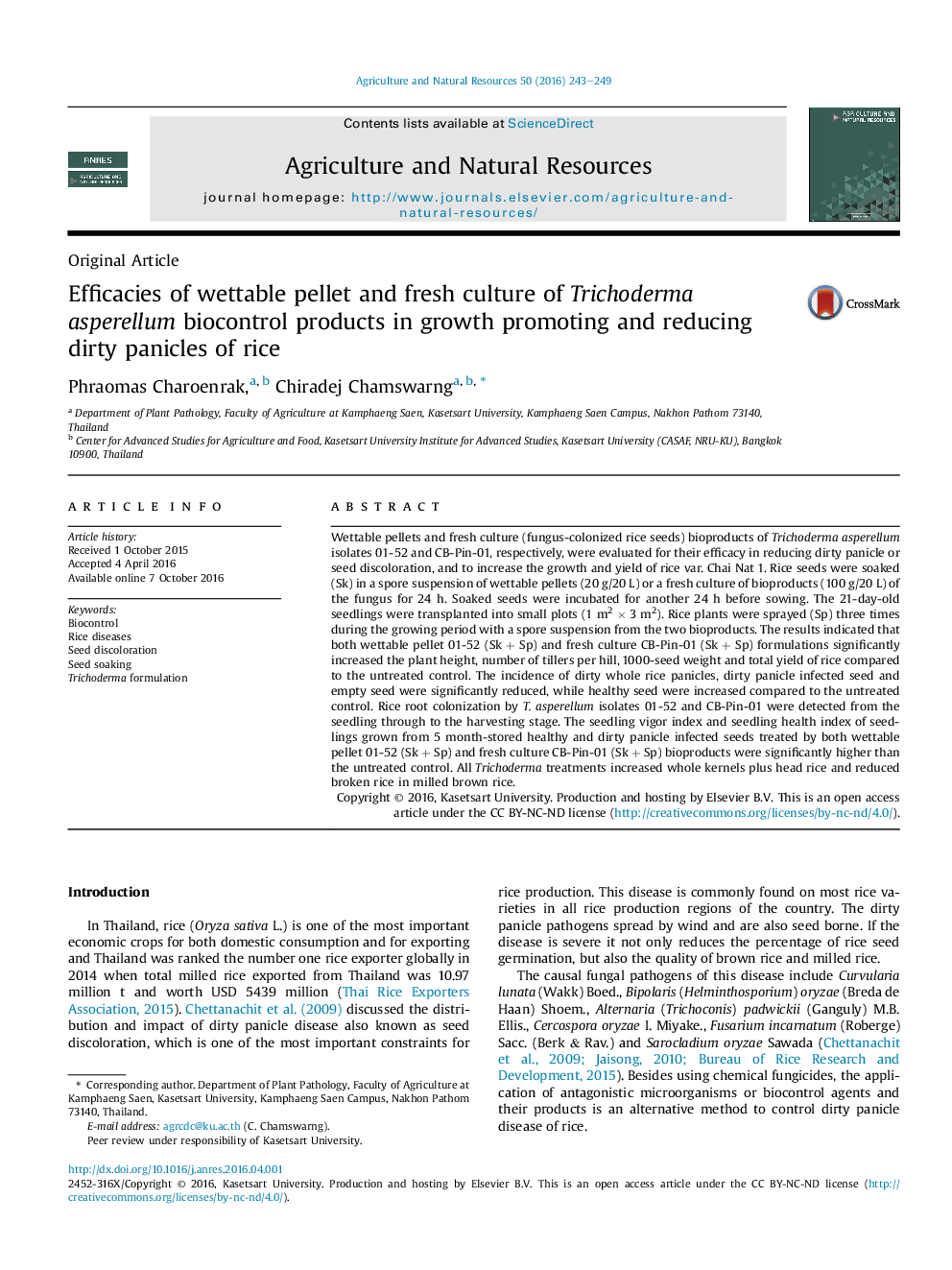| Article ID | Journal | Published Year | Pages | File Type |
|---|---|---|---|---|
| 6538161 | Agriculture and Natural Resources | 2016 | 7 Pages |
Abstract
Wettable pellets and fresh culture (fungus-colonized rice seeds) bioproducts of Trichoderma asperellum isolates 01-52 and CB-Pin-01, respectively, were evaluated for their efficacy in reducing dirty panicle or seed discoloration, and to increase the growth and yield of rice var. Chai Nat 1. Rice seeds were soaked (Sk) in a spore suspension of wettable pellets (20 g/20 L) or a fresh culture of bioproducts (100 g/20 L) of the fungus for 24 h. Soaked seeds were incubated for another 24 h before sowing. The 21-day-old seedlings were transplanted into small plots (1 m2 Ã 3 m2). Rice plants were sprayed (Sp) three times during the growing period with a spore suspension from the two bioproducts. The results indicated that both wettable pellet 01-52 (Sk + Sp) and fresh culture CB-Pin-01 (Sk + Sp) formulations significantly increased the plant height, number of tillers per hill, 1000-seed weight and total yield of rice compared to the untreated control. The incidence of dirty whole rice panicles, dirty panicle infected seed and empty seed were significantly reduced, while healthy seed were increased compared to the untreated control. Rice root colonization by T. asperellum isolates 01-52 and CB-Pin-01 were detected from the seedling through to the harvesting stage. The seedling vigor index and seedling health index of seedlings grown from 5 month-stored healthy and dirty panicle infected seeds treated by both wettable pellet 01-52 (Sk + Sp) and fresh culture CB-Pin-01 (Sk + Sp) bioproducts were significantly higher than the untreated control. All Trichoderma treatments increased whole kernels plus head rice and reduced broken rice in milled brown rice.
Keywords
Related Topics
Life Sciences
Agricultural and Biological Sciences
Forestry
Authors
Phraomas Charoenrak, Chiradej Chamswarng,
